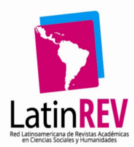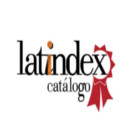Relación con el saber y recursos matemáticos de adultos que inician la escolaridad primaria
Abstract
En este artículo se presentan algunos resultados de un estudio de casos realizado en la Ciudad de Buenos Aires dirigido a conocer la relación con el saber matemático de alumnos adultos que recién inician o reinician su escolaridad primaria y sus conocimientos sobre la numeración y las operaciones. Un marco teórico en el que se apoyó este estudio ha sido la Relación con el Saber de Charlot (1991). También se han tomado los aportes de la Didáctica de la Matemática francesa, en particular de las teorías de Brousseau (1986) y Vergnaud (1990).Entre los principales hallazgos encontramos que las razones que llevan a los alumnos adultos a ir a la escuela y a estudiar matemáticas no refieren exclusivamente a un sentido utilitario. Por el contrario, la escuela es vivida como un lugar de profunda transformación personal. Relevamos una gran disponibilidad de conocimientos aritméticos. Por ejemplo, leen y escriben números de varias cifras, resuelven problemas que involucran la posicionalidad del sistema de numeración y disponen de variadas estrategias de cálculo mental.Los resultados obtenidos permiten discutir perspectivas didácticas vigentes en la enseñanza de la matemática a adultos y constituyen puntos de partida para el diseño y estudio de situaciones de enseñanza.Abstract This article presents the results from a series of case studies performed in the City of Buenos Aires aimed to understand the relationship between the mathematical knowledge of adults who have just started or re-started their initial schooling and their knowledge about numbers and mathematical operations. The theoretical framework that supports this study is the Relationship with Knowledge by Charlot (1991). It was also supported by the contributions of the french Didactics of Mathematics, in particular the theories of Brousseau (1986) and Vergnaud (1990). Amongst the main findings, the reasons why adults go to school to study math are not exclusively utilitarian. On the contrary, school is perceived as a place of profound personal transformation. We have found that these adults have a great amount of arithmetic knowledge. For example, they write and read complex numbers, resolve problems involving positioning in the numerical system, and demonstrate various strategies of mental calculus. The results of the study allow us to discuss the various perspectives of math teaching theories for adults and become a starting point for the design and study of different teaching contexts.Downloads
Download data is not yet available.
How to Cite
Broitman, C. (1). Relación con el saber y recursos matemáticos de adultos que inician la escolaridad primaria. Revista Del IICE, (32), 39-54. https://doi.org/10.34096/riice.n32.490
Issue
Section
Dossier: Educación de jóvenes y adultos | Parte II











